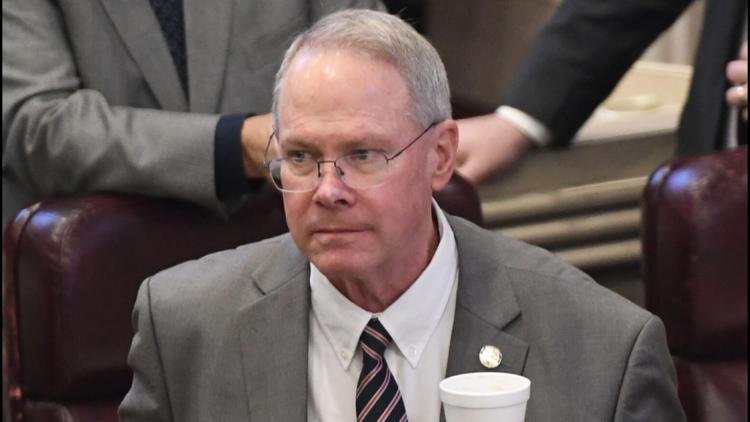MONTGOMERY, Ala. — An Alabama lawmaker wants to increase the number of jobs a person has to apply for while receiving unemployment benefits from Alabama.
HB 29, sponsored by Rep. Ed Oliver, R-Dadeville, increases the number of employers that people must contact each week from three to five to maintain benefits.
“We are in a unique time as far as labor is concerned in this state,” Oliver said during an interview Tuesday. “We simply do not have a workforce, largely because people choose not to participate. We are trying to find some ways that will help.”
Critics said the bill will do nothing to increase the state’s relatively low labor force participation rate while also endangering the well-being of people who need the money to pay for their basic needs.
“This is yet another example of mistaken priorities,” said Dev Wakeley, worker policy advocate with Alabama Arise. “This is a terrible bill. It is just another way of squeezing people who are already going through a really hard time. And it doesn’t make any sense at all.”
Aside from increasing the minimum number of job contacts that a person must make each week, the bill would also subject a person’s unemployment benefits to revocation if the individual fails to appear for an interview with an employer without giving proper notice or does not respond to a job offer with 72 hours.
The law defines both as a “rejection of a suitable offer of employment,” which are grounds for rescinding benefits.
“We think that will help,” Oliver said.
The state’s weekly unemployment benefit, according to the Alabama Department of Labor, is between $45 and $275, depending on the base period earnings.
Wakeley said the bill would be especially problematic for residents living in rural parts of the state, places without many employers for the unemployed to connect with.
“Iif you live in a rural or economically depressed area, and you can’t reapply, and you have to go to five applications a week, you could just be frozen out of the benefits that you should be entitled to,” Wakeley said. “That is the stark reality of it.”
The rules bar people from checking in with the same employer, which forces people to connect with employers who are further away from where they live.
“If you are looking at places like Greene, Sumter, Perry counties, you are, after the first couple of weeks, are already going well outside of reasonable commuting distance just to cover anything,” Wakeley said.
Gov. Kay Ivey has made increasing the state’s labor force participation rate one of her signature priorities for the past couple of years. The state ranks as the fourth-worst state in terms of labor force participation at 57.5%, according to the St. Louis Federal Reserve’s website. The worst is Mississippi at 54.2% followed by West Virginia at 55.1%. South Carolina, a state with similar demographics to Alabama, also has a labor force participation rate of 57.5%.
At an October meeting of a state commission formed to examine the issue, agencies, employers and labor advocates said the state’s low rate stemmed from a lack of adequate child care, transportation and training opportunities.
The additional rules detract from the intent of providing unemployment insurance, according to experts like Chandra Childers, senior policy and economic analyst at the Economic Policy Institute, a left-leaning think tank.
“At a larger, macro level, it would allow the economy to work better, especially during periods of recession, because now people have money that they are spending,” she said. “The flip side of that is if you make it harder to access, restrict duration, or restrict benefits, then what it does is it makes workers more desperate. It is an effort, essentially, to force workers to take any job, so therefore, they are not able to bid up the quality of jobs.”
Oliver said he understands the concerns related to restricting benefits, particularly for rural areas, but said the bill is in the preliminary stages and will continue to undergo changes as it works through the Legislature.
“That is something we are looking at right now,” he said regarding the burden the bill places on rural residents. “That might be an undue burden, but we are going to take a look and see how that works.”
This article originally appeared in the Alabama Reflector, an independent, nonprofit news outlet. It appears on FOX54.com under Creative Commons license CC BY-NC-ND 4.0.



